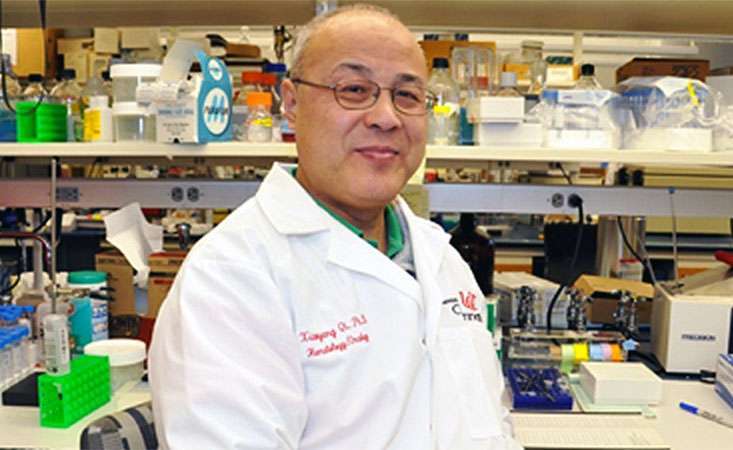
Xiaoyang Qi, PhD
Editor’s note: We recently announced the recipients of the Pancreatic Cancer Action Network’s (PanCAN) 2020 research grants. Now we’d like to introduce you to each grantee to share what brought them to the field of pancreatic cancer research and what this funding means to them.
Before Xiaoyang Qi, PhD, decided to become a cancer biologist, he fell in love with a different branch of science.
“During my childhood, what was discovered in space fascinated me – and stimulated my curiosity in pursuing a future in science,” Qi said.
Qi decided to apply his fascination with the natural world to the study of pancreatic cancer. Specifically, he is interested in how to make immunotherapy approaches more effective in patients with pancreatic cancer.
Whereas immunotherapy – activating and training the patient’s immune system to recognize and attack cancer cells – has revolutionized the treatment of other types of cancer, it hasn’t worked well in most pancreatic cancer patients to date.
Qi’s project aims to overcome some of the challenges to effective immunotherapy treatment of patients with pancreatic cancer.
Qi is now a professor in the division of hematology-oncology in the department of internal medicine and the division of human genetics in the department of pediatrics at University of Cincinnati College of Medicine.
Upon hearing he was selected for a PanCAN Translational Research Grant this year, Qi recalled feeling “excited, honored and humbled.”
He said, “The PanCAN grant will be key to the success of my translational research project in the anti-pancreatic cancer drug development from the lab bench to clinical application.”
Through this funding, Qi and his team will evaluate an experimental treatment strategy utilizing nanovesicles called SapC-DOPG.
This approach aims to reverse the pancreatic cancer cells’ ability to hide and shield themselves from an immune attack. To date, SapC-DOPG nanovesicles have been tested in an early-phase clinical trial for brain cancer, with preliminary results suggesting they’re safe for administration in patients.
Qi’s goal is to gather enough preclinical data to initiate clinical trials testing SapC-DOPG nanovesicles in patients with pancreatic cancer.
“I thank PanCAN donors and supporters who made this research grant possible,” he said. “This grant is very important to understand how we can better harness a patient’s immune system to attack their pancreatic cancer.”















